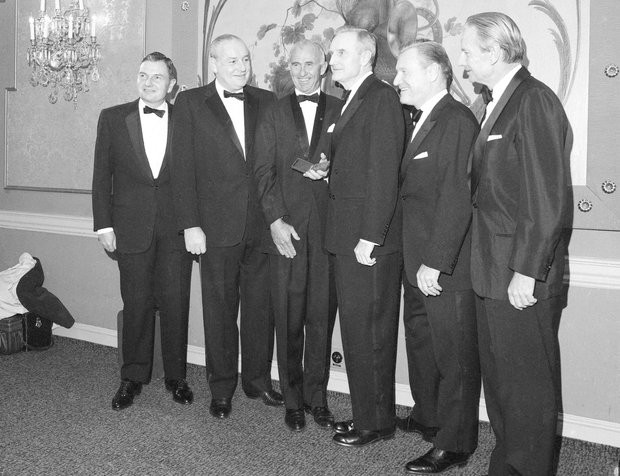The Rockefeller Brothers Fund — founded in 1940 by the five sons of John D. Rockefeller Jr. — made headlines a couple years ago when it announced it would divest its endowment of fossil fuels. Breaking with its own oil legacy was part of the fund’s decade-long commitment to align the impact of its $860 million endowment with its broader charitable goals.
The decision was based on] the moral discomfort of being a grant-making institution that is providing grants to combat global warming and remaining invested in the very companies producing the fossil fuels causing the climate change. –Stephen Heintz
The ImPact, an impact investing network co-founded by Justin Rockefeller, a great-grandson of Rockefeller, Jr. and a trustee of the fund, has a new case study exploring the Rockefeller Brothers Fund’s journey to align charitable and investment activities (see “How the ImPact is Making Impact Investing the New Normal for Wealthy Families”). Highlights:
Divest from fossil fuels. Since April 2014, the RBF has reduced its total fossil fuel exposure from 6.6 percent to 3.3 percent of its portfolio. The RBF measures its performance against its primary benchmark (70 percent MSCI All Country World and 30 percent Barclays Global Aggregate Bond) and has added a secondary fossil-fuel free benchmark of 70 percent MSCI All Country World ex Fossil Fuels and 30 percent Barclays Global Aggregate Bond.
Invest for significant, measurable impact. In 2010, the RBF committed to allocate 10 percent if its portfolio to impact investment. It surpassed that goal in August 2016 with $100 million, or 12 percent of the portfolio, committed to six impact investment funds (see table below). Its new goal? 20 percent.

Invest with an Environmental, Social and Governance (ESG) lens. The RBF has committed more than $190 million in three public equity funds: Generation IM Global Equity Fund A, DFA International Sustainability Core and Agility Global Equity Impact Fund. (Perella Weinberg Partners’ (PWP) Agility team recommends ESG funds to the RBF.
Engage in active ownership. The RBF is an active proxy voter it the public equities it holds. Several of the investment funds that Perella Weinberg has selected for the RBF are separate accounts, enabling the RBF to own the underlying securities directly and vote its own shares. The RBF plans to develop a new set of guidelines for proxy voting and shareholder activism to be implemented by 2017. In the meantime,Perella Weinberg votes its proxies, where possible, according to the ISS Sustainable Proxy Voting Guidelines.
It can be done. The RBF has committed nearly $300 million to ESG and impact funds. While it’s too early to benchmark long-term financial performance, each investment is tracking to expectations so far.
Different degrees of impact. While the RBF’s impact investments in private equity, private debt and real assets intend to create specific, measurable impact that directly advances the foundation’s mission, not all of the investments will have such degree of impact. For example, the foundation considers conventional fossil-fuel free public equities funds to be “mission-aligned.”
Collaboration boosts impact. Committing to transparency and collaboration can help other organizations build their impact investing strategies. For example, the RBF seeded PWP Agility’s Global Equity Impact Fund which let smaller institutions participate alongside RBF to make mission-aligned public equity investments.
Other institutions that are working to mission-align their endowments include the FB Heron Foundation, the McKnight Foundation, the Wallace Global Fund, the Annie E. Casey Foundation, W.K. Kellogg Foundation, the Ford Foundation and the Kresge Foundation.
More ImpactAlpha coverage on mission-related investing:












